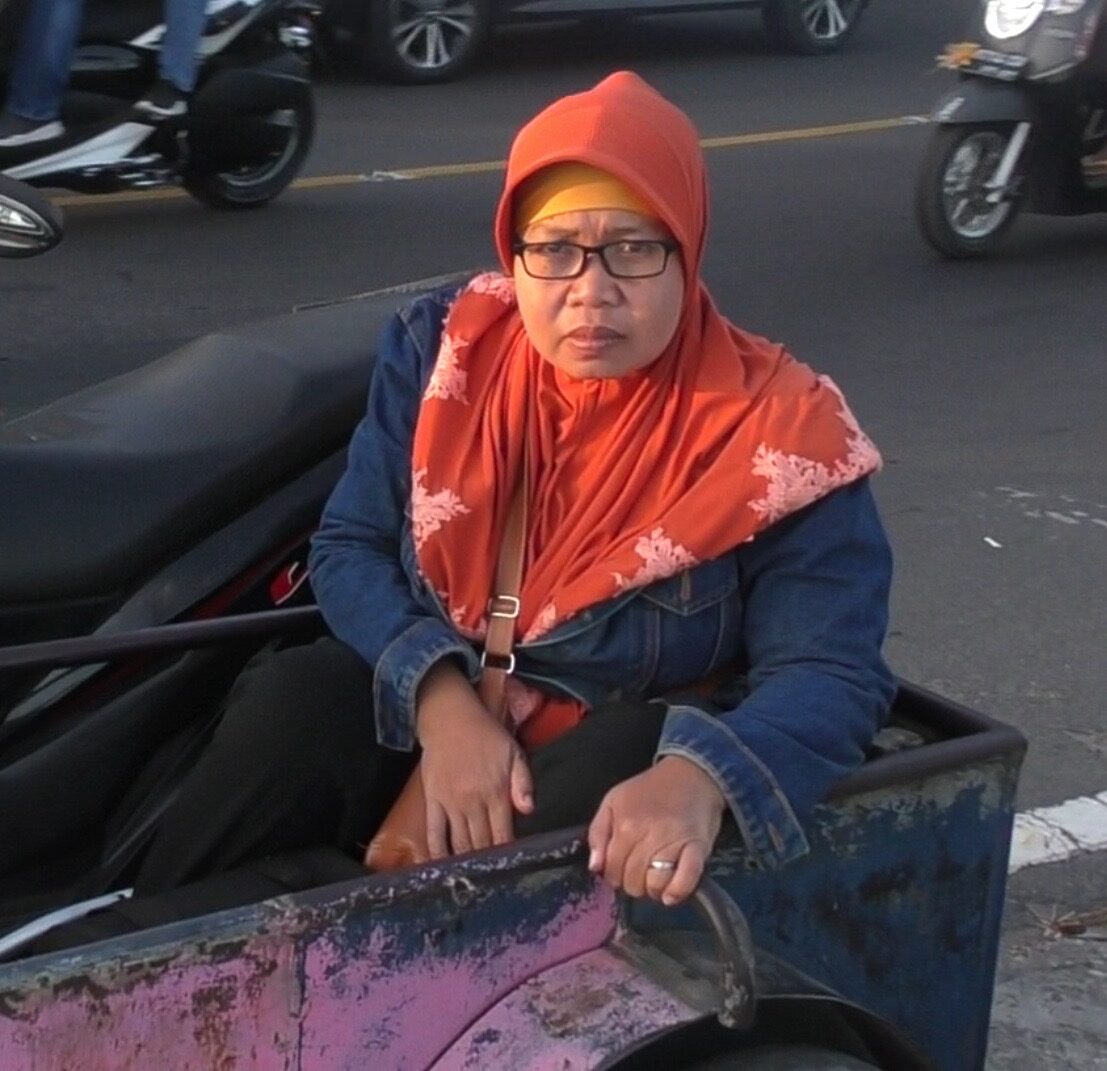
News
‘I Never Imagined I Could Do This’
As a 2022 DJP Fellow, Sri Sukarni Found Herself Behind the Camera for the First Time, Telling Stories of People with Disabilities Through Her Own Lens.
November 23, 2022
WEST LOMBOK, Indonesia – When she joined the Disability Justice Project as a filmmaking fellow in 2022, Sri Sukarni was no stranger to cameras. As chairperson of the Association of Women with Disabilities (HWDI) of NTB Province, Sukarni was used to giving media interviews. While these interviews gave her a chance to shine a light on local disability rights issues, she says she wasn’t always happy with the way the news portrayed people with disabilities in her country. “I sometimes feel happy when there is a story about people with disabilities experiencing success and independence,” says Sukarni. “However, I am sad to see when the media presents people with disabilities as though they can’t do anything, as if we should be pitied, supported. If the media is like that, my heart is very sad.”
During her time as a DJP Fellow, Sukarni experienced for the first time what it was like to tell her own story – shaping the narrative as she saw it. She says the feeling it brought her was relief. “Relief, the first is relief,” Sukarni says. “The second is that I feel happy. Of course, I feel happy to be able to produce videos, which I never imagined I could do this.”
Through the Association of Women with Disabilities in Indonesia (HWDI), Sukarni dedicates much of her time to lifting up women with disabilities in her community. Founded in 1997, the organization has branches all over Indonesia that are run by and for women with disabilities. “HWDI fights for the rights of women with disabilities because we know that women with disabilities face two layers of discrimination,” Sukarni says. “One for being women and the second for being women with disabilities.”
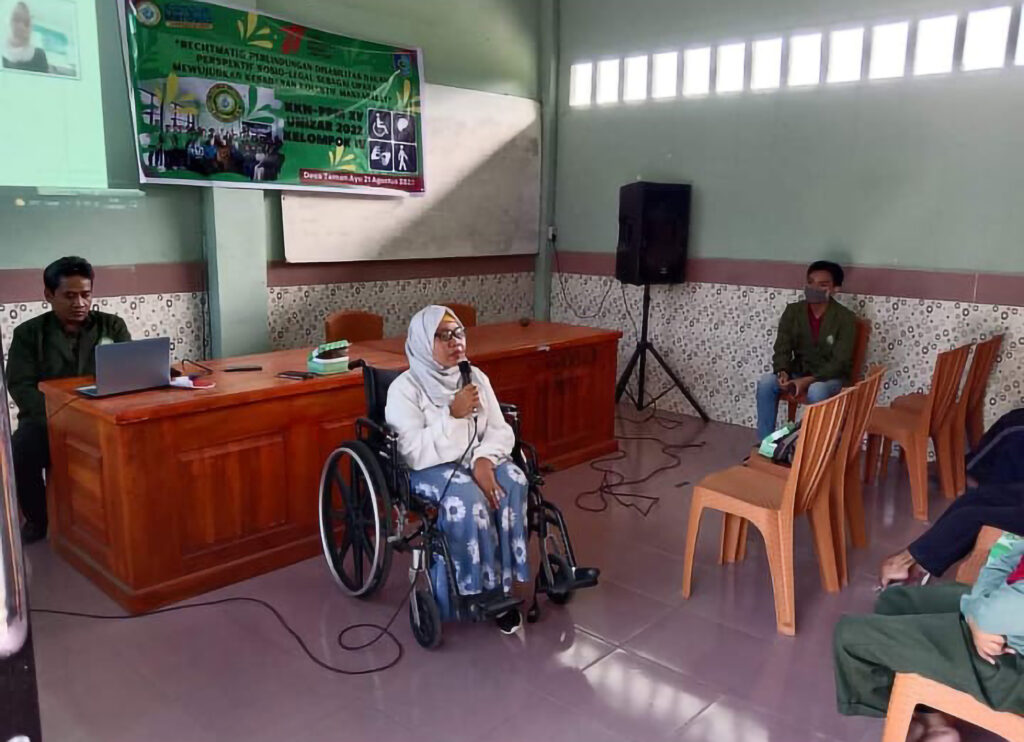
The first video Sukarni produced in partnership with the DJP tells the story of Sustia Rini, a woman who faces exactly this type of layered discrimination. In addition to living with a disability, Rini is a survivor of domestic violence. The video follows her on her journey to access affordable health care for her family after leaving her husband. “In Indonesia, women with disabilities are often the ‘poorest of the poor’ and are particularly vulnerable to gender-based violence,” says the introduction to Sri’s film on the DJP website. “Rini has been no exception. In 2019, she left her husband because of abuse, and she has not had any type of permanent employment. Now, every time she or someone in her family needs healthcare, she faces difficult choices that could drive her and her children further into poverty.”
There are still many more stories that Sukarni wants to tell using the skills she’s learned from the DJP. She’s particularly interested in examining local issues that people with disabilities face in her community, like the challenge of accessing a good education and employment. But one of her top concerns is accessibility. “There’s still a lot I want to produce about how are the public service buildings in NTB [West Nusa Tenggara] not yet friendly to people with disabilities,” says Sukarni. “This is what I want to convey to the media, to the government. That we also have the same rights, that we also want to feel comfortable when we use public services.”
Delainey LaHood-Burns is a digital content producer based in New Hampshire and a contributor to the Disability Justice Project. @2022 Disability Justice Project. All rights reserved.
News From the Global Frontlines of Disability Justice
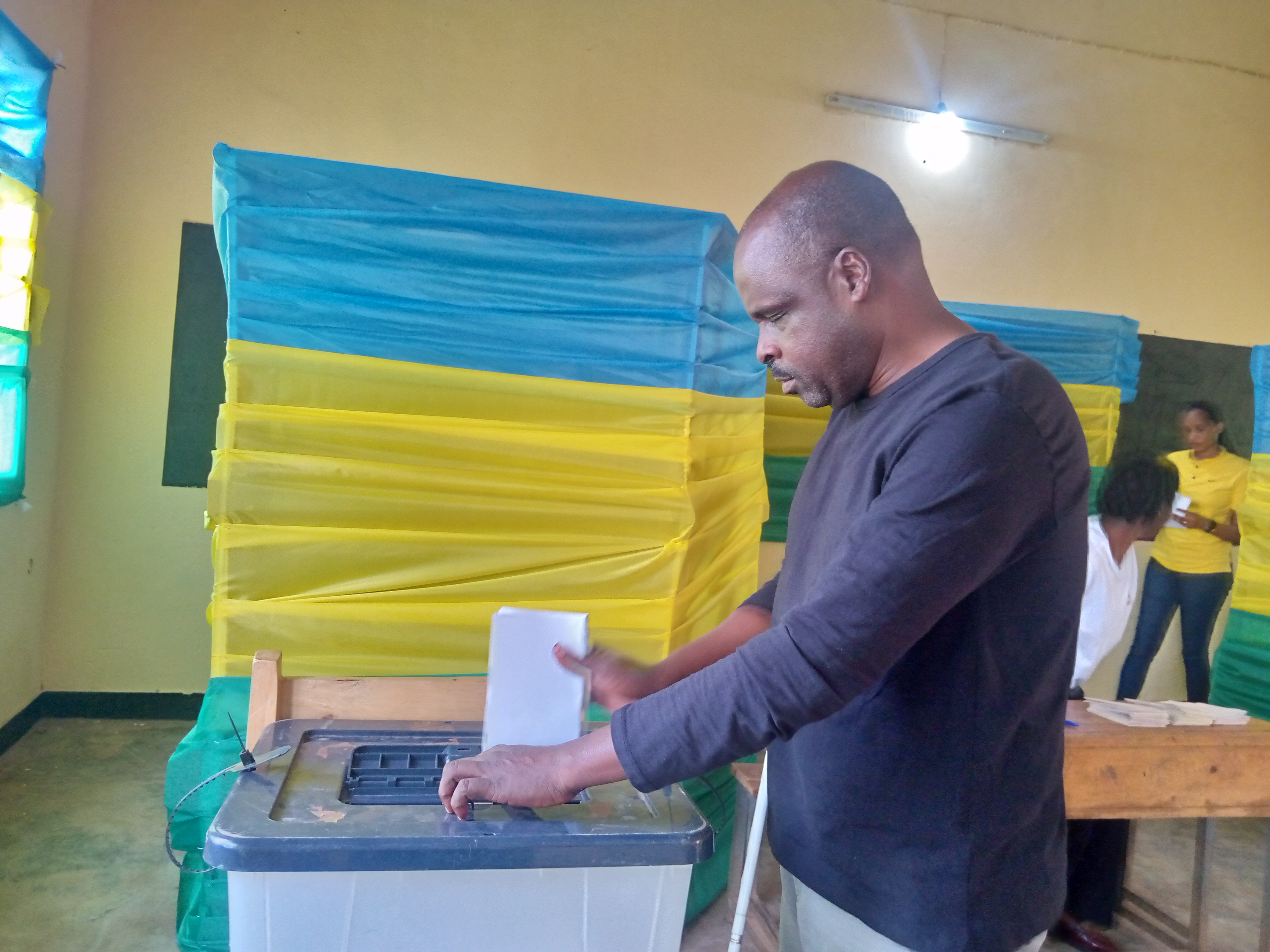
Advancing Democracy
Rwanda has made significant progress in making its elections more accessible, highlighted by the July 15 general elections where notable accommodations were provided. This was a major step forward in disabled Rwandans’ quest for equal rights and participation. “You cannot imagine how happy I am, for I have voted by myself and privately as others do accessibly,” says Jean Marie Vianney Mukeshimana, who used a Braille voting slate for the first time. “Voting is a deeply emotional and meaningful experience for a person with any disability in Rwanda, reflecting a blend of pride, empowerment, and hope.”
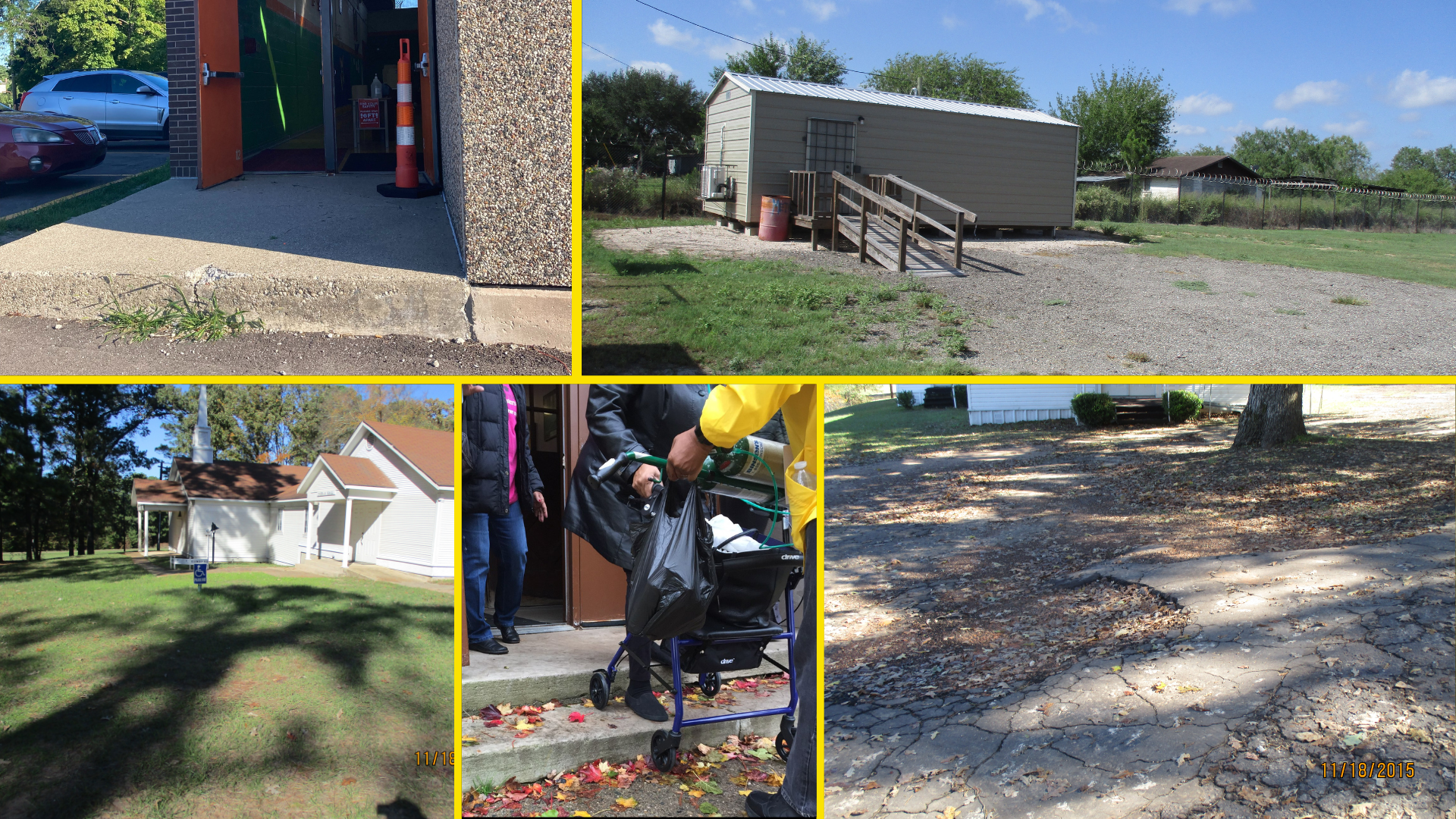
Barriers to the Ballot
Despite legislation like the Americans with Disabilities Act, barriers at the polls still hinder — and often prevent — people with disabilities from voting. New restrictive laws in some states, such as criminalizing assistance with voting, exacerbate these issues. Advocacy groups continue to fight for improved accessibility and increased voter turnout among disabled individuals, emphasizing the need for multiple voting options to accommodate diverse needs. ““Of course, we want to vote,” says Claire Stanley with the American Council of the Blind, “but if you can’t, you can’t.”
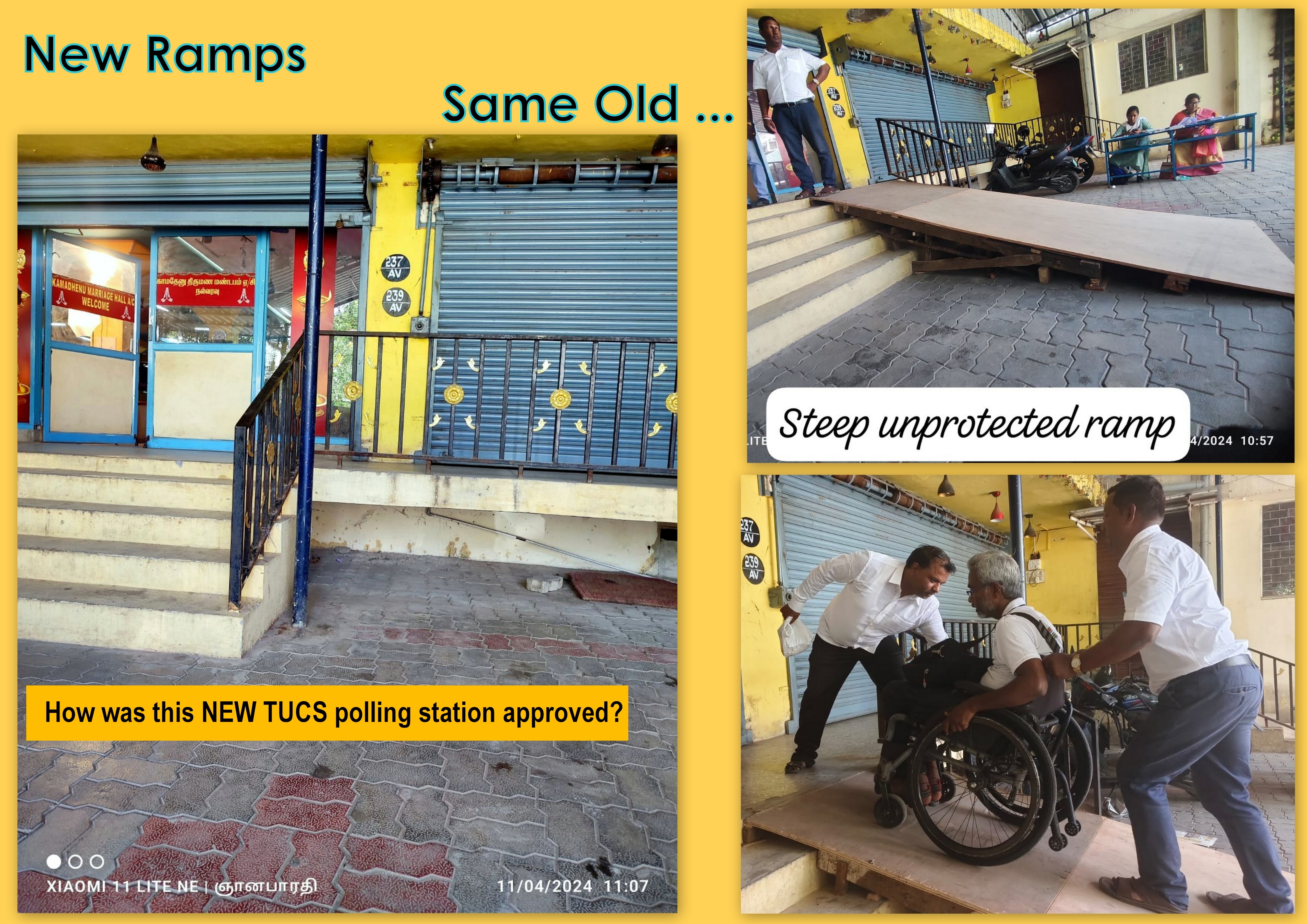
Democracy Denied
In 2024, a record number of voters worldwide will head to the polls, but many disabled individuals still face significant barriers. In India, inaccessible electronic voting machines and polling stations hinder the ability of disabled voters to cast their ballots independently. Despite legal protections and efforts to improve accessibility, systemic issues continue to prevent many from fully participating in the world’s largest democracy. “All across India, the perception of having made a place accessible,” says Vaishnavi Jayakumar of Disability Rights Alliance, “is to put a decent ramp at the entrance and some form of quasi-accessible toilet.”
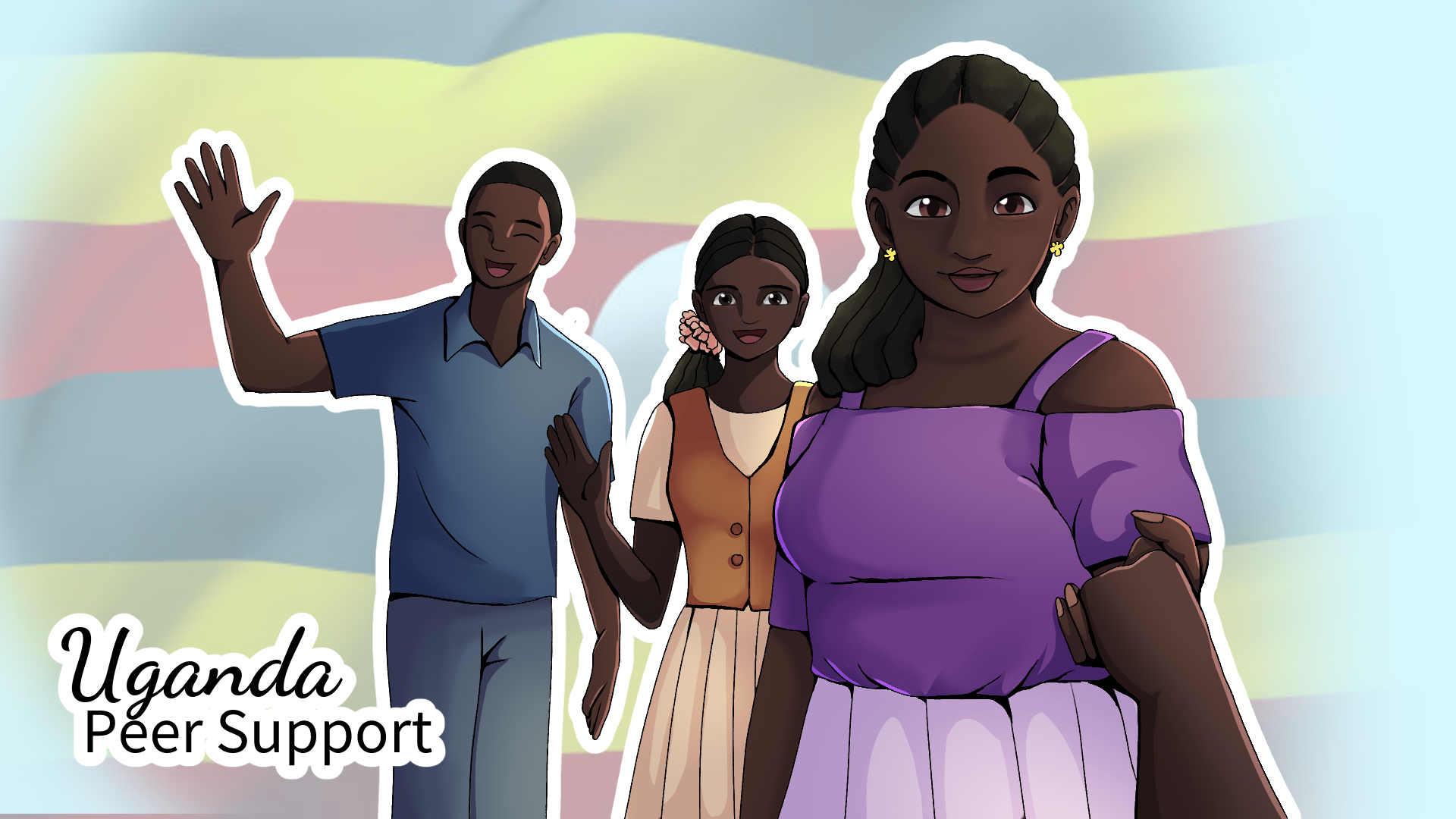
Triumph Over Despair
DJP Fellow Esther Suubi shares her journey of finding purpose in supporting others with psychosocial disabilities. She explores the transformative power of peer support and her evolution to becoming an advocate for mental health. “Whenever I see people back on their feet and thriving, they encourage me to continue supporting others so that I don’t leave anyone behind,” she says. “It is a process that is sometimes challenging, but it also helps me to learn, unlearn, and relearn new ways that I can support someone – and myself.”
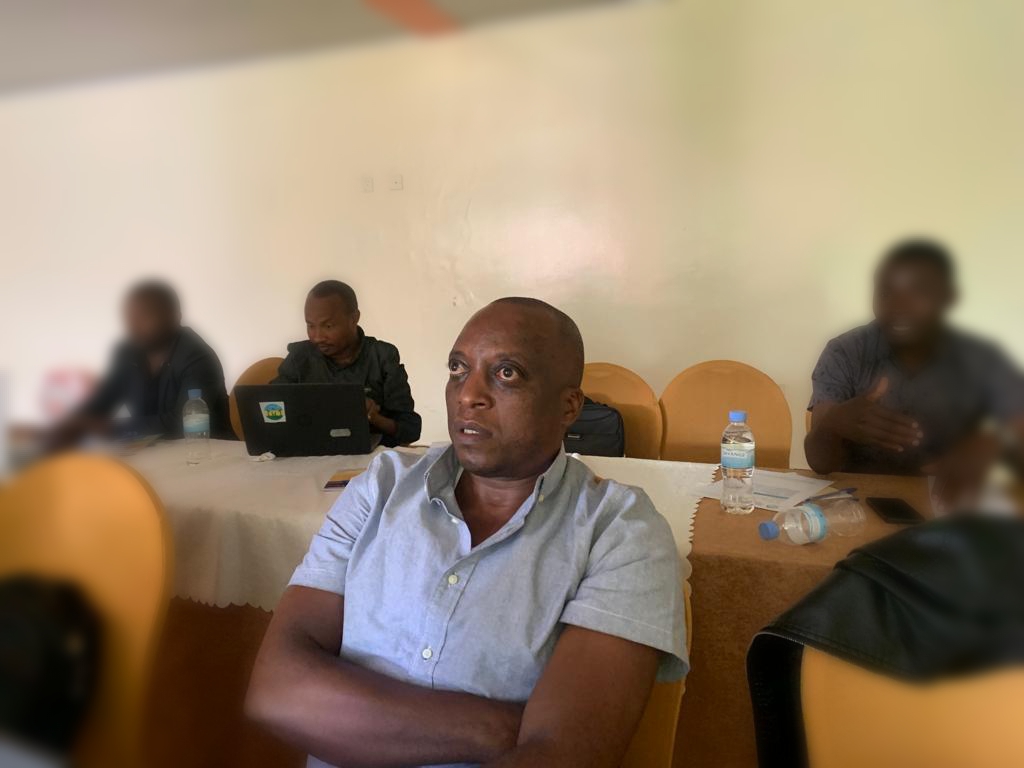
‘Our Vote Matters’
As Rwanda prepares for its presidential elections, voices like Daniel Mushimiyimana’s have a powerful message: every vote counts, including those of citizens with disabilities. Despite legal frameworks like the UN Convention on the Rights of Persons with Disabilities, challenges persist in translating these into practical, accessible voting experiences for over 446,453 Rwandans with disabilities. To cast a vote, blind people need to take a sighted relative to read the ballot. An electoral committee member must be present, violating the blind person’s voting privacy. “We want that to change in these coming elections,” says Mushimiyimana.
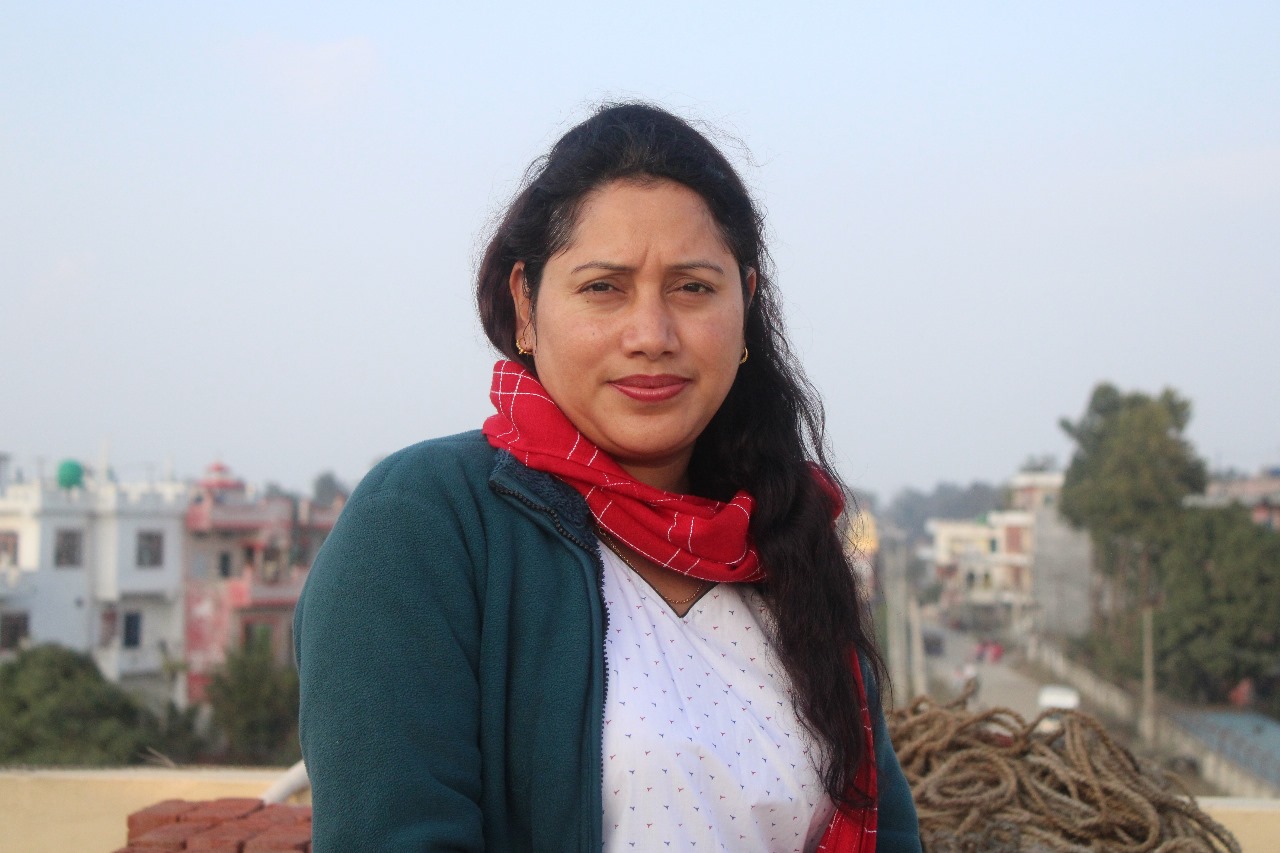
Voices Unsilenced
Often dismissed as a personal concern, mental health is a societal issue, according to Srijana KC, who works as a psychosocial counselor for the Nepali organization KOSHISH. KC’s own history includes a seizure disorder, which resulted in mental health challenges. She faced prejudice in both educational settings and the workplace, which pushed her towards becoming a street vendor to afford her medications. Now with KOSHISH, she coordinates peer support gatherings in different parts of Nepal. “It is crucial to instill hope in society, recognizing that individuals with psychosocial disabilities can significantly contribute,” she says.